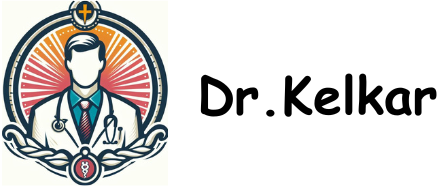Low Testosterone: Causes, Symptoms, and Treatment Options

Reduced testosterone levels, frequently referred to as low Testosterone, indicate a physiological state marked by a decline in the production of the essential hormone testosterone in the body. While testosterone is commonly associated with male reproductive health, its influence extends across various physiological functions applicable to both men and women. This article aims to scrutinize the distinct causes, manifestations, and potential interventions for individuals contending with low testosterone.
Causes of Testosterone Decline:
A multitude of factors can contribute to the decline in testosterone levels, spanning from lifestyle choices to underlying medical conditions. The natural aging process remains a significant factor, instigating a gradual decrease in testosterone production typically commencing in one’s late 30s or early 40s. Additional factors contributing to this condition include obesity, diabetes, persistent stress, and the utilization of particular medications like corticosteroids and opioids.
Indicators of Diminished Testosterone:
The consequences of low testosterone manifest through a spectrum of symptoms, affecting both the physical and mental facets of an individual’s well-being. Typical indicators encompass enduring fatigue, reduced sexual drive, erectile dysfunction, muscle mass depletion, elevated body fat, mood swings, and difficulties in sustaining concentration. Given the diversity of these symptoms, a precise diagnosis is imperative, as they may be indicative of various health concerns beyond low testosterone.
Diagnostic Procedures:
When faced with symptoms associated with low testosterone, seeking consultation with a healthcare professional becomes imperative. The diagnostic process commonly includes a detailed scrutiny of medical records, a meticulous physical assessment, and comprehensive blood analyses tailored to assess the levels of testosterone in the system.Identifying the root cause is pivotal for formulating an effective and tailored treatment regimen.
Treatment Modalities:
The approach to addressing low testosterone hinges on the severity of symptoms, the underlying cause, and the individual’s overall health. Testosterone replacement therapy (TRT) emerges as a frequently opted treatment route, involving the administration of testosterone through injections, gels, patches, or implants, distinguishing it as a commonly favored choice. Conversely, integrating lifestyle adjustments, including consistent physical activity, a well-balanced diet rich in nutrients, and the implementation of stress-relief strategies, holds the potential to naturally boost testosterone levels.
It is crucial to acknowledge that TRT may not be universally applicable, necessitating a meticulous evaluation of potential risks and benefits under the guidance of a healthcare provider. Consistent monitoring of hormone levels throughout the course of treatment remains paramount to ascertain its efficacy and address any potential side effects.
Preventive Measures and Lifestyle Adjustments:
Although certain factors contributing to low testosterone, such as aging, are beyond one’s control, cultivating a healthy lifestyle can serve as a proactive approach to prevention or mitigation. Engaging in regular physical activity, adhering to a nutrient-rich diet, ensuring adequate sleep, and adopting stress management techniques collectively contribute to sustaining hormonal equilibrium.
Low testosterone emerges as a prevalent condition impacting both genders, exerting its influence on diverse aspects of physical and mental well-being. Seeking professional medical guidance is imperative for an accurate diagnosis and the formulation of a personalized treatment plan. Whether through the application of testosterone replacement therapy or the adoption of lifestyle adjustments, addressing low testosterone holds the potential to enhance one’s overall quality of life and well-being.
- Art
- Causes
- Crafts
- Dance
- Drinks
- Film
- Fitness
- Food
- Oyunlar
- Gardening
- Health
- Home
- Literature
- Music
- Networking
- Other
- Party
- Religion
- Shopping
- Sports
- Theater
- Wellness


